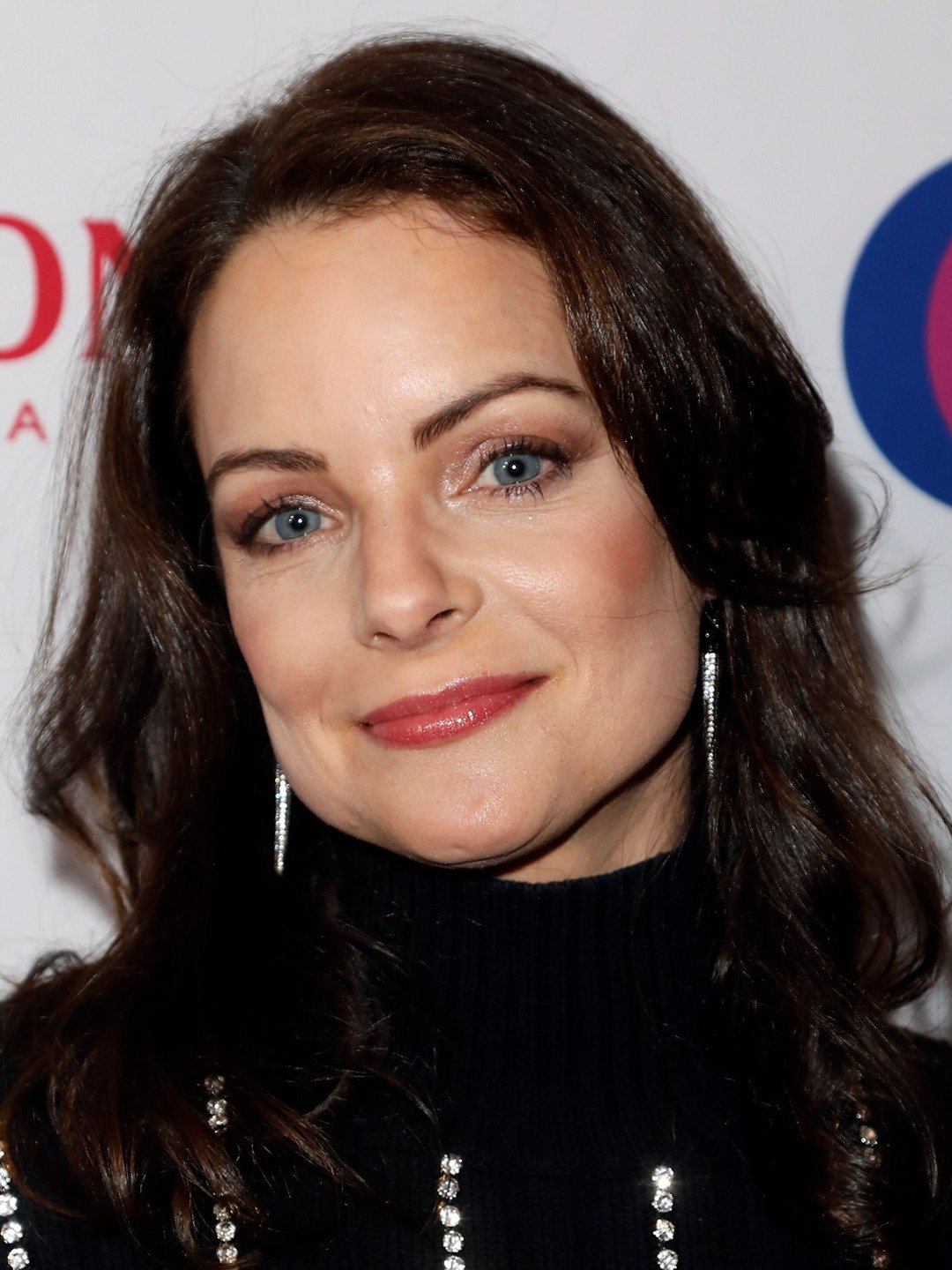There are people in the public eye who really do open up their lives, sharing bits of their personal journey with everyone. It is a thing that allows us to feel a bit closer to them, to see them as someone more like us, with real experiences and feelings. Kimberly Williams-Paisley, someone many of us have seen on screens for a good while, has, in some respects, shown us a great deal of her own path.
She has a way of being an actor, a storyteller, and a person who is willing to talk about things that are often kept private. This openness, you know, makes her stand out. It gives us a chance to connect with her on a level that goes beyond just watching her perform.
What we sometimes see of her life includes moments of great challenge, like losing her voice, or the deep impact of a loved one's health struggles. She has, apparently, talked about these things, even putting some of her thoughts into a book. It is a way, perhaps, of making sense of life's more difficult turns, and maybe helping others along the way.
Table of Contents
- Biography of Kimberly Williams-Paisley
- What challenges did Kimberly Williams-Paisley face?
- How did Kimberly Williams-Paisley find her voice again?
- Kimberly Williams-Paisley and the journey of family care.
- What is the significance of the Kimberly Williams-Paisley book?
- A look at shared experiences for Kimberly Williams-Paisley.
- How has Kimberly Williams-Paisley shared her experiences?
- The enduring spirit of Kimberly Williams-Paisley.
Biography of Kimberly Williams-Paisley
Kimberly Williams-Paisley is a public figure who has spent a good portion of her life in the spotlight, known for her acting work. She has been part of various projects that many people have watched and enjoyed over the years. Her presence on television and in films has, you know, made her a familiar face to a wide audience. She is someone who has been able to bring characters to life, making them feel real to those watching.
Beyond her acting, she is also someone who has, in a way, shared parts of her personal world. This willingness to talk about life outside of her professional roles gives us a fuller picture of who she is. It is a step that many public people choose to take, and it often builds a stronger connection with those who follow their work. This connection is, basically, built on a sense of shared human experience.
Her life as a public person, you know, involves a lot of different aspects. She is an actor, someone who writes, and a person with family connections that mean a lot to her. These various parts of her life all come together to form the individual we see and hear about. She has, apparently, spoken about how these different roles intersect and influence one another, giving us a clearer view of her path.
It is, perhaps, a testament to her openness that we get to hear about some of the more personal parts of her story. This includes moments of difficulty and times of finding strength, which she has, like, chosen to put into words for others to consider. This kind of sharing is not always easy, but it can be very meaningful for those who are listening or reading.
Personal Details - Kimberly Williams-Paisley
| Occupation | Actor, Author |
| Known For | Work in film and television, personal writing |
| Public Sharing | Discussing personal experiences, including health challenges and family life |
| Published Works | Authored books reflecting on personal impact |
What challenges did Kimberly Williams-Paisley face?
Life, for anyone, brings its own set of difficulties, and for Kimberly Williams-Paisley, some of these have been quite significant. She has, you know, spoken about a time when she went through something rather profound with her own body. There was a period when she expressed feeling as though she was stuck, as if she couldn't move freely within her own physical self. This sensation of being trapped, as she put it, is a powerful way to describe a very unsettling experience.
One of the specific things she talked about was a sudden loss of her voice. Imagine, for a moment, being an actor, someone whose work relies so much on speaking, on expressing through words, and then suddenly finding that ability gone. It is, basically, a very disorienting thing to happen. This kind of unexpected change can make a person feel very much out of control, like a part of their identity has been taken away. She has, apparently, talked about this sudden event, and how it affected her deeply.
Beyond her own physical challenges, she also shared a very personal struggle related to her family. Her mother, it seems, was dealing with a serious health condition, a type of memory loss called dementia. This is, you know, a situation that affects not just the person who has it, but also everyone around them, especially their family members. It changes the way people interact and adds a lot of different kinds of responsibilities and emotions.
Dealing with a loved one's health issues, particularly something that changes their personality and memory, is a very, very hard road to walk. It brings with it moments of sadness, confusion, and a lot of caregiving work. Kimberly Williams-Paisley has, you know, been open about how this particular challenge impacted her and her family. It shows a real strength to be able to talk about such private and often painful experiences with the wider world. It is, in some respects, a way of helping others who might be going through something similar.
How did Kimberly Williams-Paisley find her voice again?
When facing a challenge as personal as losing one's ability to speak, finding a way to communicate again becomes a central part of the journey. For Kimberly Williams-Paisley, it seems, one important way she found her voice, even if not always her literal speaking voice, was through writing. She put her experiences into a book, a collection of her thoughts and feelings, which she called "Where the Light Gets In." This act of putting pen to paper, or fingers to keyboard, can be a very powerful way to process what has happened.
The book itself is, apparently, about the way life's difficulties can leave a mark, about the deep personal effect of these things. It explores how challenges, even those that seem to dim everything, can also reveal moments of brightness. The title itself suggests a focus on finding good things even when circumstances are tough. This approach to storytelling is, you know, a way of transforming personal struggle into something that can be shared and understood by others.
Writing a book about such personal experiences is, you know, a big step. It means taking private moments and making them public, with the hope that they might resonate with someone else. This is a form of communication that goes beyond just talking; it is a way of creating a lasting record of one's thoughts and feelings. For Kimberly Williams-Paisley, this book became a vessel for her experiences, a way to express what she had been through when her spoken words were, perhaps, not there in the same way.
It is, in a way, a different kind of voice, a written one, but no less impactful. This method of expression allows for a deeper reflection, a chance to really think about the words and how they might affect a reader. So, for her, the book was not just a story; it was a means of reclaiming a sense of expression and connection with the world around her, even after facing such a difficult physical change.
Kimberly Williams-Paisley and the journey of family care.
The journey of caring for a family member, especially when they are dealing with something like dementia, is a very personal and often all-consuming path. Kimberly Williams-Paisley has, apparently, been open about her mother's struggle with this condition. This kind of experience changes family dynamics in profound ways, asking a lot from those who are providing care and support. It is a process that can bring a wide range of emotions, from love and dedication to frustration and sadness.
When a parent, someone who has always been a source of guidance and comfort, begins to lose their memory and their sense of self, it is, you know, a very hard thing to witness. It requires a lot of patience and a willingness to adapt to new ways of relating to that person. The role of child often shifts to that of caregiver, and this can be a difficult adjustment for everyone involved.
Kimberly Williams-Paisley's choice to talk about her mother's health issues publicly is, in a way, a very brave one. Many families keep such personal struggles private, but by sharing her story, she has, perhaps, opened up a conversation for others. It allows people who are going through similar situations to feel less alone and to find common ground. This act of sharing can be a source of comfort and validation for many.
Her experiences with family care show a deep personal commitment and a willingness to face life's more tender and challenging moments head-on. It is, basically, a demonstration of the strong bonds that exist within families, and how people step up when someone they love needs them most. This part of her story adds a very human layer to her public persona, showing a side of her that is, you know, relatable to so many who have faced similar circumstances.
What is the significance of the Kimberly Williams-Paisley book?
The book written by Kimberly Williams-Paisley, "Where the Light Gets In," holds a special place because of the very personal story it tells. It is, in some respects, more than just a collection of words; it is a way for her to share a piece of her own heart and mind with others. The meaning behind the book's title itself suggests a focus on finding moments of brightness and hope even when life feels dark or challenging. This message is, you know, something many people can connect with, especially when they are going through their own difficult times.
The significance of this book comes from its ability to connect with readers on a very human level. It is, apparently, a story about the personal effect of her mother's health condition, and perhaps other life events, too. When someone shares their own struggles so openly, it creates a sense of shared experience. Readers might find parts of their own lives reflected in her words, which can be a very comforting feeling. It is a way of saying, "You are not alone in this."
Furthermore, the book serves as a form of personal expression for Kimberly Williams-Paisley. When she faced the challenge of losing her voice, writing became a different kind of outlet. This means the book is not just a story she is telling, but also a way she is processing and making sense of her own journey. It is, basically, a testament to the power of putting thoughts and feelings into a written form, especially when other ways of communicating might be difficult.
So, the book is significant because it offers a message of resilience, provides comfort to those facing similar situations, and acts as a very personal outlet for its author. It is, like, a bridge between her private experiences and the public who might benefit from hearing them. It is a very, very real example of how personal stories can become a source of strength and connection for a wider audience.
A look at shared experiences for Kimberly Williams-Paisley.
Public figures often have platforms where they can share their stories, and Kimberly Williams-Paisley has, you know, used these opportunities to talk about her personal experiences. One specific instance mentioned was an exclusive interview she had with "Today" on a particular date. These kinds of conversations are important because they allow a person to speak directly to a large group of people, offering insights into their life beyond what is seen on screen.
During this interview, she, apparently, discussed some very personal matters. She talked about the time she lost her voice, which, as we considered, was a very unsettling event for her. She also spoke about her mother's ongoing struggle with dementia. These are not easy topics to discuss publicly, but by doing so, she opened up a window into her own journey, allowing others to learn from her experiences. It is, basically, a very courageous act to be so open about private difficulties.
The act of sharing these experiences in a public forum like a television interview means that her story reaches a lot of homes. It gives people a chance to hear her words, to see her expressions, and to feel a connection to what she is saying. This kind of communication is, you know, different from reading a book; it has a more immediate and direct feel to it. It allows for a sense of intimacy, even with a large audience.
So, these shared experiences, whether through an interview or a book, are a way for Kimberly Williams-Paisley to connect with people on a deeper level. It is, in a way, about more than just entertainment; it is about human connection and understanding. It shows how personal stories, when told with honesty, can resonate widely and offer something meaningful to many different people.
How has Kimberly Williams-Paisley shared her experiences?
Kimberly Williams-Paisley has, apparently, used various ways to communicate her personal stories and insights. As an actor and television personality, she already has a public presence, which gives her a natural platform. This means she can reach people through her work, but also through interviews and other public appearances where she talks about her life beyond her roles. It is, you know, a bit like having a megaphone for your thoughts and feelings.
One of the main ways she has shared her experiences is through her writing. Her book, "Where the Light Gets In," is a very clear example of this. Writing allows for a deeper, more reflective kind of sharing. It gives her the space to carefully choose her words and to build a narrative that fully expresses what she wants to convey. This is a very powerful way to communicate, especially when the subject matter is very personal and complex.
Then there are the spoken conversations, like the exclusive interview she gave to "Today." These interviews are a different kind of sharing. They are immediate and allow for a more direct interaction with the public. In these settings, she can talk about her experiences, like losing her voice or her mother's health, in a conversational tone, making it feel more like a chat with a friend. This kind of direct talk is, basically, very engaging for viewers.
So, whether it is through the careful crafting of a book or the spontaneous flow of an interview, Kimberly Williams-Paisley has, in some respects, found multiple avenues to share her personal journey. These different ways of communicating mean that her story can reach a wider audience and connect with people in various ways, depending on how they prefer to receive information. It is, like, a multi-faceted approach to opening up about life.
The enduring spirit of Kimberly Williams-Paisley.
Even when faced with personal challenges, some individuals maintain a strong presence and continue to connect with the world around them. Kimberly Williams-Paisley is, apparently, one of those people. Despite talking about moments of feeling trapped or dealing with significant family health issues, she has, you know, continued to be a public figure, working and sharing parts of her life. This shows a real strength of character, a kind of inner resilience.
Related Resources:



Detail Author:
- Name : Dayton Weber IV
- Username : katherine.beatty
- Email : wintheiser.malcolm@gmail.com
- Birthdate : 1992-03-28
- Address : 96539 Alessandra Expressway New Tyshawnshire, NY 50908-6604
- Phone : 1-608-965-4945
- Company : Stokes-Cummerata
- Job : Captain
- Bio : Eligendi repellendus nesciunt excepturi reprehenderit eaque accusantium eveniet. Aperiam ab officia exercitationem necessitatibus sint et tenetur esse. Quam aut nam id voluptatem dolores qui.
Socials
instagram:
- url : https://instagram.com/muhammad_real
- username : muhammad_real
- bio : Aspernatur vel quas velit et et. Nisi maiores voluptas perspiciatis.
- followers : 213
- following : 270
tiktok:
- url : https://tiktok.com/@muhammad.schaefer
- username : muhammad.schaefer
- bio : Possimus eligendi architecto debitis voluptate saepe.
- followers : 604
- following : 2402